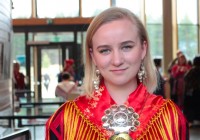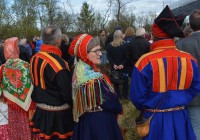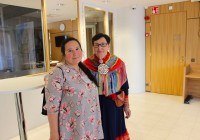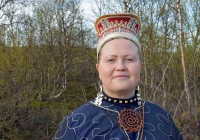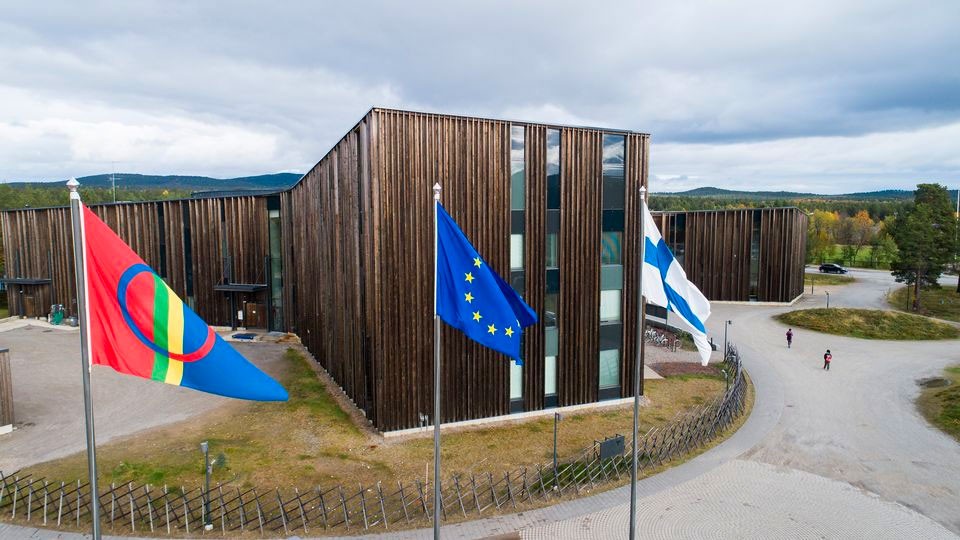
Council of Europe recommends that Finland grant permanent funds for promotion of Sámi languages
ADVERTISEMENT
Text by Aletta Lakkala
The Committee of Experts of the Council of Europe submitted its report on its recommendations to the State of Finland for improving the situation of minority languages at the beginning of October.
The recommendations came late as a result of the fact that the report of the Finnish authorities to the Council of Europe was delayed by more than six years.
«Finland submitted the periodical report with a delay of more than six years, which seriously hampers the effectiveness of the monitoring mechanism,» the Committee states.
Finland has committed itself to implimenting the European Charter for Regional or Minority Languages. The Charter is the only international treaty in the world that provides support for minority languages. Finland is required to report on the concrete application of the Charter to the Council of Europe every third year, after which the Expert Committee of the Council gives its recommendations to the State on how to improve the conditions of minority languages.
ADVERTISEMENT
“A great deal remains to be done”
The Expert Committee of the Council of Europe finds that though the Finnish authorities have promoted the protection of minority languages, a great deal remains to be done.
Concerning North, Inari and Skolt Sámi, the Committee finds that progress has been made in the development of teaching materials and the provision of language nests. However, the possibility of using the Sámi languages in health care and social services is still very limited.
The Committee has also found problems concerning the teacher training of Sámi-speaking teachers and the sustained funding of certain activities, such as the provision of non-compulsory education.
The Committee wants permanent funding for language promotion
The Expert Committee of the Council of Europe recommends, for example, that Finland work toward extending the Giellagaldu project in co-operation with Norway and Sweden and make the funding for the promotion of the Sami languages sustainable; furthermore, measures should be taken to strengthen basic and further teacher training, especially for subject teachers in Sami, and to increase awareness and tolerance vis-à-vis Sami, both in education and in the media.
The Expert Committee notes that the fact that more than 60 percent of the Finnish Sámi live outside the Sámi Area makes it more difficult to improve the language situation especially in education and health and social services. Thus, the Committee recommends that the State of Finland strengthen and increase teaching through the Sámi language outside the Sámi Area too. The Committee sees the provision of permanent funding for language nests and adult education as a means of achieving this.
The Committee also recommends that the State of Finland take measures to make health and social services more available in the Sámi languages.
The final recommendations will be laid down by the Council of Europe’s Committee of Ministers later.
|
The European Charter for Regional or Minority Languages aims to improve the situation of minority languages. The Charter acknowledges minority languages as part of the European cultural heritage and aims to promote their position among the main languages of Europe. The objective is to protect the small, endangered languages that the inhabitants of the States use traditionally. Thus, the Charter does not apply to the languages spoken by immigrants, for instance. Finland is required to report on the concrete application of the Charter to the Council of Europe every third year, after which the Expert Committee of the Council gives its recommendations to the State on the basis of the report and other relevant information. The final recommendations are laid down by the Council of Europe’s Committee of Ministers. Thus, the Committee monitors that the States actively promote the use of these languages in all public domains. In Finland, the Charter entered into force in 1998. In addition to North, Inari and Skolt Sámi, it applies to the Karelian, Romani, Russian, Swedish, Tatar and Yiddish languages. |
Translated from Sámi by Kaija Anttonen
This story is originally posted at Yle Sapmi and re-published as part of Eyes on Barents, a collaborative partnership between news organizations and bloggers in the Barents region.
ADVERTISEMENT
The Barents Observer Newsletter
After confirming you're a real person, you can write your email below and we include you to the subscription list.





